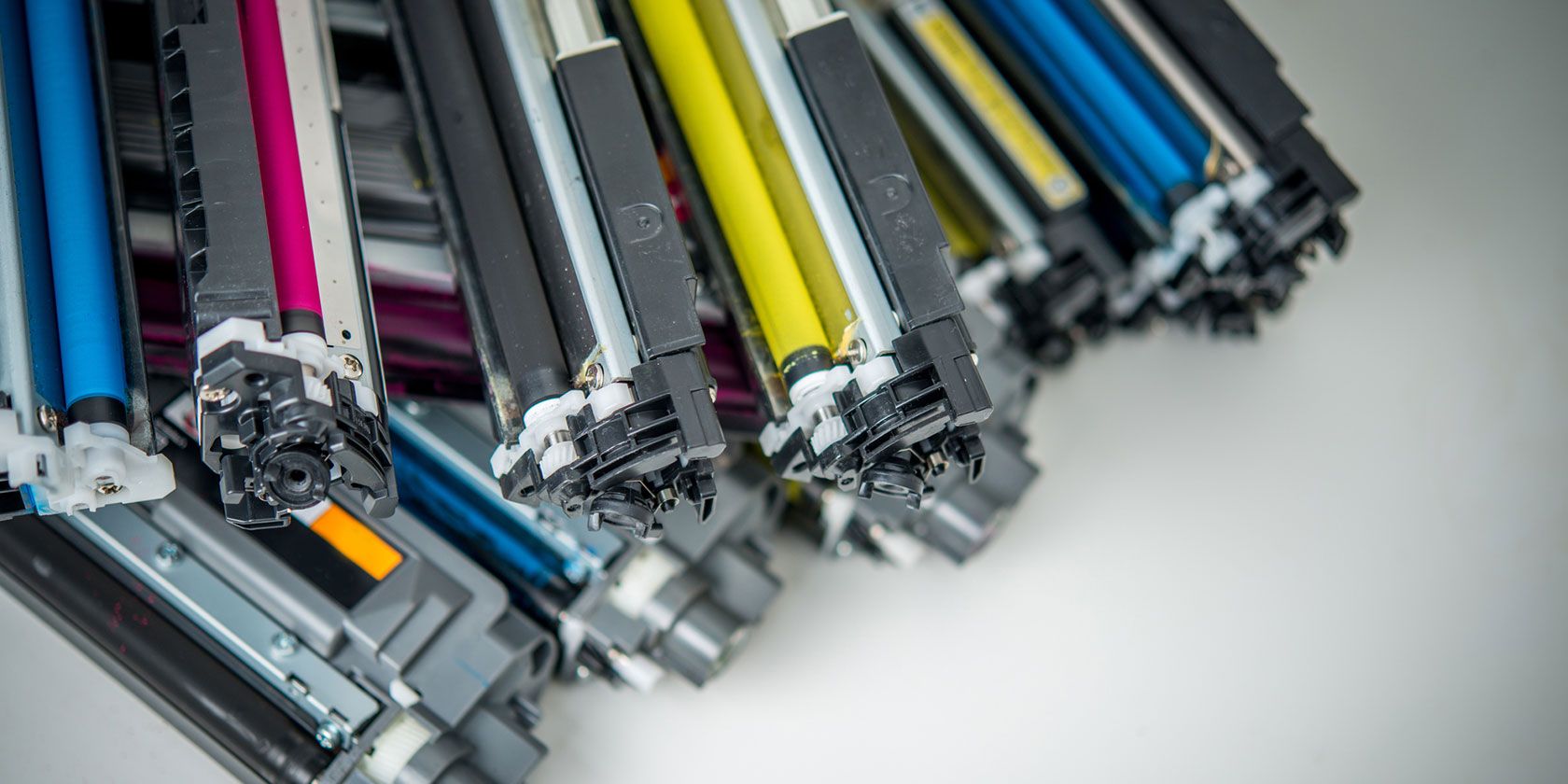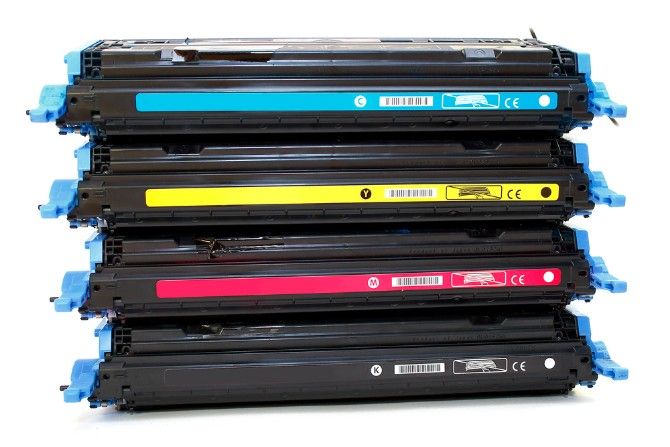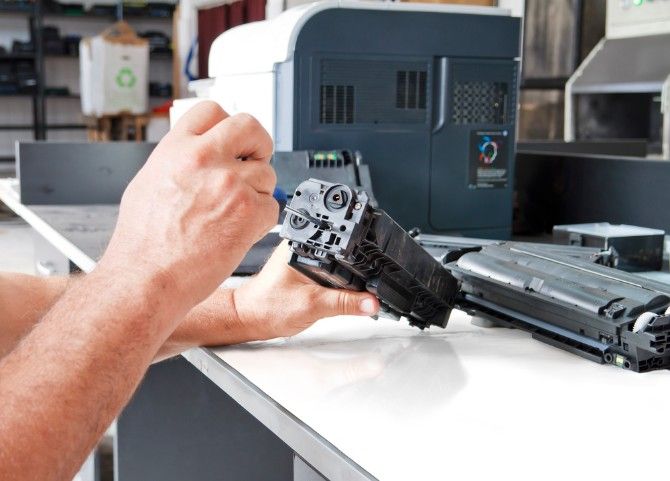What do printers do? Well, they make paper copies of what's on your screen. But contrary to what you may think, modern LaserJet toner cartridges don't print using ink. So then how do LaserJet toner cartridges work?
Here's everything you need to know about LaserJet printers, toner cartridges, and which ones are the best to buy.
How Laserjet Toner Cartridges Work
While LaserJet printers depend on lasers to some extent (unlike other types of printers), it's actually static electricity that makes all the magic happen.
Preparing to Print
A LaserJet printer consists of several components. Let's start with the photoreceptor drum assembly, a revolving cylinder made of photoconductive material.
Printers beam a laser beam across the surface of this revolving drum. The drum has a positive charge, but the laser discharges the points it comes in contact with, leaving the resulting image with a negative charge (or vice versa). In this way, the laser draws the document or image you wish to print.
The printer then coats the drum not with ink, but with powder. This powder sticks to the electrostatic image the laser has drawn. The powder consists of two ingredients: pigment and plastic. Pigment provides the color, while the plastic is there to adhere the pigment to paper. This mixture, known as toner, is spun in a component called the hopper.
The Printing Process
The printer then feeds paper under the drum, first giving the paper a stronger negative charge than that of the electrostatic image. This enables the paper to pull the powder away from the drum.
The paper then passes through a pair of heated rollers referred to as the fuser. As it does, the plastic particles melt and blend with the paper. This process allows the powder to adhere to more types of paper than conventional ink, as long as they can handle the fuser's heat.
This is also why paper is hot when it first comes out of a laser printer.
Toner Cartridges
When you buy a toner cartridge, you're often getting a lot more than a container of powder. Some printers include the drum assembly, hopper, and toner developer within a single replaceable cartridge.
Laserjet printers also contain multiple cartridges for printing in color: black, cyan, magenta, and yellow. This is why they are such bulky machines.
What to Look for in a LaserJet Toner Cartridge
Toner cartridges may largely do the same task, but they're not all the same. When planned obsolescence kicks in and the time comes to invest in a new one, you want to make sure you're buying a quality product.
To save money and walk away with the kind of experience you want, here are some questions to keep in mind while shopping:
Does the cartridge work in your printer? If you're buying a new cartridge, this is as simple as matching brand and model numbers. But if you're looking at third-party options, you may have to do more research. Even if a cartridge theoretically works with your printer, differences in toner powder or other components can result in damage. Triple-check reviews and whatever other information you can get your hands on.
How much does it cost to print a page? Toner cartridges can be expensive, sometimes more expensive than the cost of the printer itself. When comparing price, look at the cost per page, rather than the total cost of the cartridge. This gives you a more accurate read on whether one cartridge is truly more affordable than another.
How many pages can you print? Toner cartridges may be expensive, but you're getting a lot of pages for your buck. The average toner cartridge lasts over 1,500 pages. Some print more, and some print less. How many pages is an acceptable number to you?
Can you recycle this cartridge? Some LaserJet toner cartridge manufacturers provide their own recycling programs. Various department stores also perform this service. See which options are available in your area, and which brands are supported.
How's the print quality? You can answer all of the above questions usually by reading a toner cartridge's box or product page. But for print quality, you may have to dive into reviews or turn to firsthand experience. Not all cartridges will deliver the same quality results. Are you willing to take a hit in print quality if it means drastically cutting the price?
LaserJet Toner Cartridges: To Refill or Replace?
Replacing LaserJet toner cartridges adds up after a while. Plus, the process is inherently wasteful. Wouldn't it be better to refill cartridges instead?
Manufacturers, perhaps unsurprisingly, recommend that you always use a new cartridge. They claim that refilled or remanufactured alternatives risk damage to the printer.
In this case, they're telling the truth. If there isn't enough lubricant in the toner, that can damage the drum or cleaning blade. Large amounts of loose toner can clog the air filter. The wrong melting point or particle size can cause harm in different ways.
Manufacturers test and design new cartridges specifically for your machine. Refilling a cartridge adds variability to the process. Is it guaranteed to break your printer? Not at all. But you are exposing yourself to that risk. Though if you're used to buying used products, you may already be comfortable with such a gamble.
Unfortunately, you may not even have the option. Like inkjet printers, some LaserJet toner cartridges now contain chips that communicate when a cartridge is empty. You can refill the product, but without the ability to reset the chip, the printer will still think there's nothing there.
You may also notice a difference in print quality. A refilled cartridge might not give you the kind of crisp prints you expect. You may also find that you're not getting as many prints as you were before.
Electronic waste recycling is far from perfect, but you may find it to be the preferable way to go. In the process of trying to save cartridges, you may use up more paper and end up having to replace your entire printer.
Is It Time to Buy a New Printer?
Due to all these variables, there's no real best toner we recommend you buy. However, by knowing these tips and applying our advice, you have a good chance of getting the best option for your particular printer and budget.
And if it's time to upgrade, make sure you ask yourself some questions before you choose a new printer.
Image Credit: antpkr/Depositphotos



